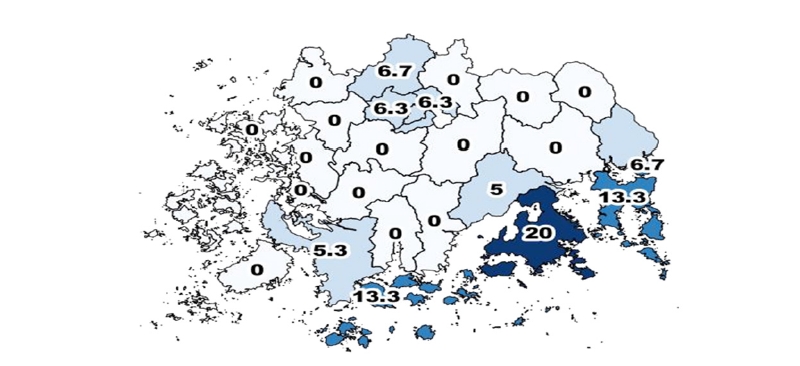Abstract
This study was carried out to investigate the resistant levels of
Figures & Tables

Fig. 1.Occurrence rates (%) of an acetolactate synthase (ALS) inhibiting herbicide (imazosulfuron + pyriminobac-methyl) resistant in soil collected in paddy field of Gwangju and Jeonnam provinces.


